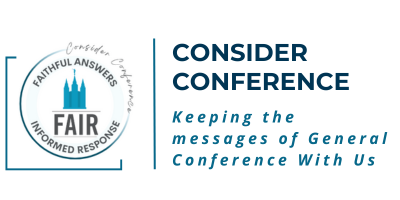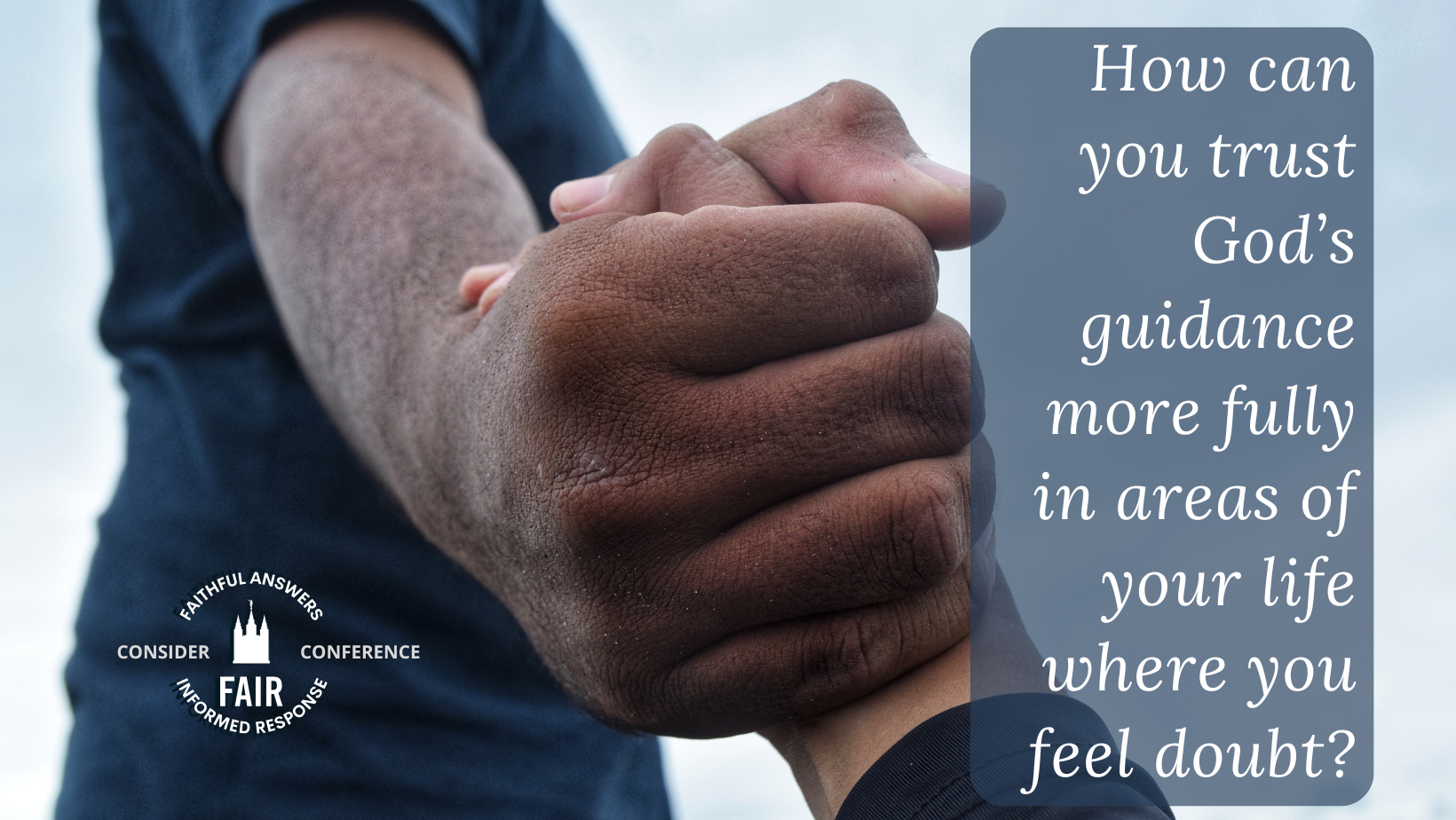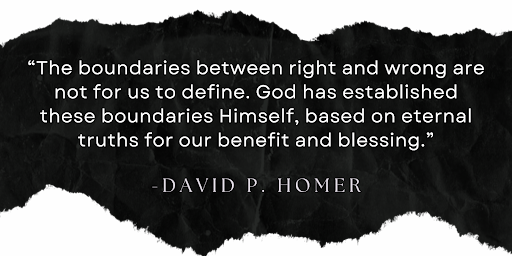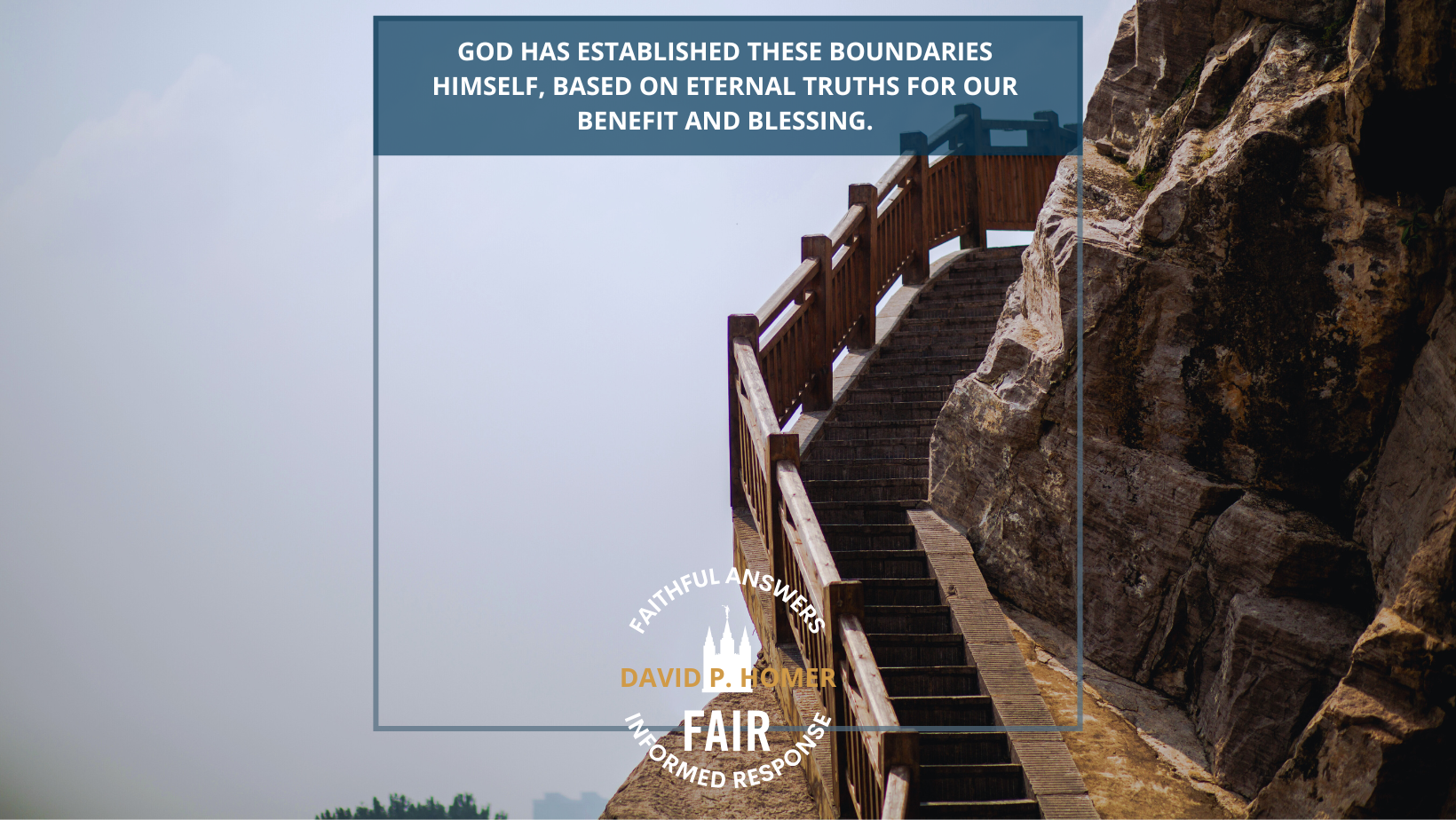
Can faith and trust in God’s guidance coexist with personal doubts?
Elder David P. Homer’s recent General Conference address, “Trusting Our Father,” explores a fundamental question: How can we fully trust God’s will, even when it challenges our own understanding? Drawing on historical and scriptural examples, Elder Homer emphasizes that God’s boundaries are eternal and defined by His love for us. As we seek to understand these divine truths, this talk offers valuable insights for those facing doubts or challenges to their faith.
Questions, Misconceptions, and Criticisms
Doctrine:
- Misconception: Truth is always relative and depends on individual perspective or context.
- Response: This belief reflects the philosophical concept of moral relativism, which suggests that what is right or true depends entirely on social norms, personal beliefs, or situational factors. However, Elder David P. Homer counters this idea by teaching that God’s truths are absolute, eternal, and independent of human perspective. “The boundaries between right and wrong are not for us to define. God has established these boundaries Himself, based on eternal truths for our benefit and blessing.”
Elder Homer asserts that while circumstances can shape how we experience or apply principles, some truths remain unchanged because they are divinely appointed. For example, the law of chastity, honesty, and the command to love one another are consistent moral standards that transcend cultural shifts. These truths are not contingent on context but are rooted in God’s eternal character.
- Response: This belief reflects the philosophical concept of moral relativism, which suggests that what is right or true depends entirely on social norms, personal beliefs, or situational factors. However, Elder David P. Homer counters this idea by teaching that God’s truths are absolute, eternal, and independent of human perspective. “The boundaries between right and wrong are not for us to define. God has established these boundaries Himself, based on eternal truths for our benefit and blessing.”
- Fallacies and Cognitive Biases:
-
- Moral Relativism Fallacy: This fallacy suggests that since different cultures have varying beliefs about what is right or wrong, no universal truth exists. While individual experiences vary, God’s laws are designed for the eternal well-being of all His children, not just specific groups or times.
- Appeal to Popularity (Bandwagon Fallacy): Believing that truth must conform to popular opinion assumes that societal consensus determines what is morally right. This is flawed because majorities have often supported unjust practices in history. Truth is not a democratic process; it is revealed by God.
Social Issues:
- Criticism: Commandments should change to align with evolving social norms.
- Response: The belief that God’s laws must adapt to current cultural standards is based on the assumption that divine commandments are outdated social constructs. However, Elder Homer teaches that God’s commandments are not arbitrary rules but expressions of His love and eternal wisdom. “God’s saving truths are absolute, independent, and defined by God Himself.”
While societies evolve, God’s commandments remain constant because they are designed to bring lasting happiness and spiritual safety. For example, commandments related to honesty, fidelity, and service reflect eternal principles that uplift individuals and communities. When societal values deviate from divine law, God does not alter His laws to accommodate humanity’s changing preferences; instead, He invites us to align with His higher standard.
- Response: The belief that God’s laws must adapt to current cultural standards is based on the assumption that divine commandments are outdated social constructs. However, Elder Homer teaches that God’s commandments are not arbitrary rules but expressions of His love and eternal wisdom. “God’s saving truths are absolute, independent, and defined by God Himself.”
- Fallacies and Cognitive Biases:
-
- Appeal to Novelty: This fallacy assumes that newer societal norms are inherently better than established principles simply because they are modern. This discounts the wisdom embedded in enduring divine teachings.
- Presentism Bias: This bias judges historical religious teachings based on modern cultural values, ignoring the fact that God’s commandments are meant to be timeless and not bound by current societal trends.
- False Dilemma: Some assume that if commandments don’t change, believers must choose between following an outdated moral code or rejecting faith entirely. This oversimplifies the process of living faith, which involves applying unchanging truths in changing circumstances with personal revelation and divine grace.
- By understanding that God’s laws are rooted in eternal truths rather than social consensus, we can see the wisdom in commandments that sometimes feel countercultural. Elder Homer reminds us that trusting in God’s design leads to spiritual clarity, peace, and lasting joy.
Defending Divine Doctrine
Elder Homer’s emphasis on trusting in divine boundaries provides an apologetic approach to several common critiques. By underscoring that truth is not for humans to redefine, he aligns with Come, Follow Me lessons in Moroni 1-6 about the Sacrament, repentance, and ordinances as God-given instructions rather than culturally influenced practices.
Application: Trusting God’s Boundaries in Daily Life
This teaching helps counter the criticism that Church doctrines are restrictive. By trusting that God’s boundaries are an expression of love, believers can find meaning even when doctrines challenge their views. Elder David P. Homer’s talk offers several practical “to-do” items that help apply this principle in everyday life:
- Pause, Reflect, and Respond with Faith:
-
- “When we don’t understand, we can pause, let our feelings settle, and then choose how to respond.” When faced with difficult teachings or personal struggles, practice pausing before reacting. This pause creates space for spiritual clarity through prayer and thoughtful reflection.
- Study the Scriptures and Listen to Prophets
-
- “Fortunately, we have the scriptures and guidance from living prophets to help us understand God’s truth.” Commit to a consistent scripture study routine. Focus on teachings that address current questions or concerns, such as studying Come, Follow Me lessons or recent General Conference talks. Create a study journal to write down insights, questions, and how you see God’s guidance in your life.
- Seek Personal Revelation
-
- “If clarification beyond what we have is needed, God provides it through His prophets. And He will respond to our sincere prayers through the Holy Ghost.” Practice regular personal prayer, specifically asking for help understanding God’s will. Follow promptings from the Holy Ghost, even when they require courage or sacrifice.
- Stay with Faith through Uncertainty
-
- “We must never allow doubt to hold us prisoner and keep us from the divine love, peace, and gifts that come through faith in the Lord Jesus Christ.” When doubts arise, try Elder Dieter F. Uchtdorf’s counsel to “doubt your doubts before you doubt your faith.” Create a habit of spiritual resilience by focusing on past spiritual experiences and holding onto the truths you already know.
- Choose to Trust God’s Timing
-
- “God gives His word according to the attention and effort we devote to it.” Make a conscious decision to trust God’s timeline. This might mean waiting patiently for answers to long-term questions while staying active in your spiritual practices.
- Remember God’s Eternal Perspective
-
- “God has something better for us. If we reach out to Him, He will assist us.” Write down one area of your life where you struggle to trust God’s plan. Pray specifically about that area, asking for His help in seeing things from His eternal perspective.
By applying these steps, believers can build trust in God’s eternal laws rather than being influenced by temporary societal trends or personal uncertainties. As Elder Homer’s talk illustrates, trusting divine boundaries leads to deeper peace, spiritual growth, and lasting joy—even when understanding takes time.
Explaining the Nature of the Priesthood
Elder Homer’s discussion on trusting divine roles and structures supports the Church’s position on priesthood authority as sacred and purpose-driven. For example, Moroni 3 discusses the importance of ordaining individuals by priesthood authority—a principle that underscores God’s intentional design for leadership in His Church.
Historical and Doctrinal Connections
Contextual Background – The Story of Louisa Barnes Pratt
The example of Louisa Barnes Pratt courageously following God’s guidance despite personal reluctance mirrors the journeys many of us take in faith. This historical story reminds us of the faith required to trust in God’s eternal plan, even when societal norms suggest alternative paths.
Resources for Deeper Understanding:
-
Priesthood
- Church resource: Revelation for Our Lives
Living Apologetics
Practical Application
Respectful Dialogue Guide: When discussing spiritual topics, particularly the idea of absolute truth vs. relative morality, it’s important to approach conversations with empathy, patience, and clarity. Here’s how to engage effectively:
- Listen Actively: Begin by listening without interrupting to understand others’ perspectives, even if they differ from your own.
- Ask Open-Ended Questions: Use phrases like, “How did you come to that conclusion?” or “What do you believe about truth?” to invite thoughtful dialogue.
- Clarify God’s Teachings with Humility: Share beliefs without being defensive. Say something like: “I believe that God’s laws are based on eternal principles meant for our lasting happiness.”
- Acknowledge Common Concerns: Recognize that trusting in God’s will can be challenging. You might say: “There have been times I’ve struggled to understand a commandment, but as I’ve studied and prayed, I’ve come to see its deeper purpose.”
- Express Love and Understanding: No matter the outcome, express kindness: “Thank you for sharing your perspective. I’ve enjoyed learning more about what you believe.”
Faith in Action: Applying Elder David P. Homer’s counsel to trust in God’s boundaries, even when public opinion or personal desires differ, strengthens our spiritual foundation.
Suggested Actions:
- Speak with Purpose: Share your beliefs about God’s eternal truths when the opportunity arises. This might be during family discussions, in church meetings, or with friends who have honest questions. Use phrases like: “I believe that God’s truth isn’t defined by society but revealed through His prophets.”
- Study Faithfully: Strengthen your understanding by studying scriptures and prophetic counsel. Focus on sections like Alma 30 (Korihor’s rebellion) and 2 Nephi 2 (agency and eternal law). Seek personal revelation on how to trust God’s will more fully.
Quick Reference: Key Defenses and Facts
- Truth is Eternal: God’s truths are independent and do not change based on cultural trends.
- Historical Figures in Faith: Stories like Louisa Barnes Pratt show that trusting God often requires courage against popular opinion.
- Sacrament and Ordinances: Following sacred ordinances, as discussed in Moroni 1-6, helps believers connect to God’s guidance and protection.
Conclusion
Encouragement and Reflection: Elder Homer’s message encourages us to trust in God’s eternal love and wisdom, especially in times of doubt or challenge. When we recognize that God’s boundaries are expressions of His love, we can find peace in His plan for us.

“God trusts us to make many important decisions, and in all matters He asks us to trust Him. This is especially difficult when our judgment or public opinion differs from His will for His children. Some suggest that we should redraw the lines between what is right and what is wrong because they say that truth is relative, reality is self-defined, or God is so generous that He does not actually care about what we do. As we seek to understand and accept God’s will, it is helpful to remember that the boundaries between right and wrong are not for us to define. God has established these boundaries Himself, based on eternal truths for our benefit and blessing.”
Share Your Insight
Share your thoughts on trusting God’s boundaries – your thoughts and experiences can help others!
The Consider Conference series by FAIR offers an in-depth look at recent General Conference talks to help members of the Church of Jesus Christ of Latter-day Saints navigate common questions, misunderstandings, and criticisms. Each post provides doctrinal insights, historical context, and practical ways to apply gospel principles in everyday conversations. Through this series, we hope to equip readers with faith-promoting resources that encourage thoughtful reflection, respectful dialogue, and a stronger foundation in gospel truths, fostering both personal conviction and meaningful discussions with others.
The post Trusting God’s Boundaries: Faithfully Navigating Modern Challenges appeared first on FAIR.
Continue reading at the original source →





